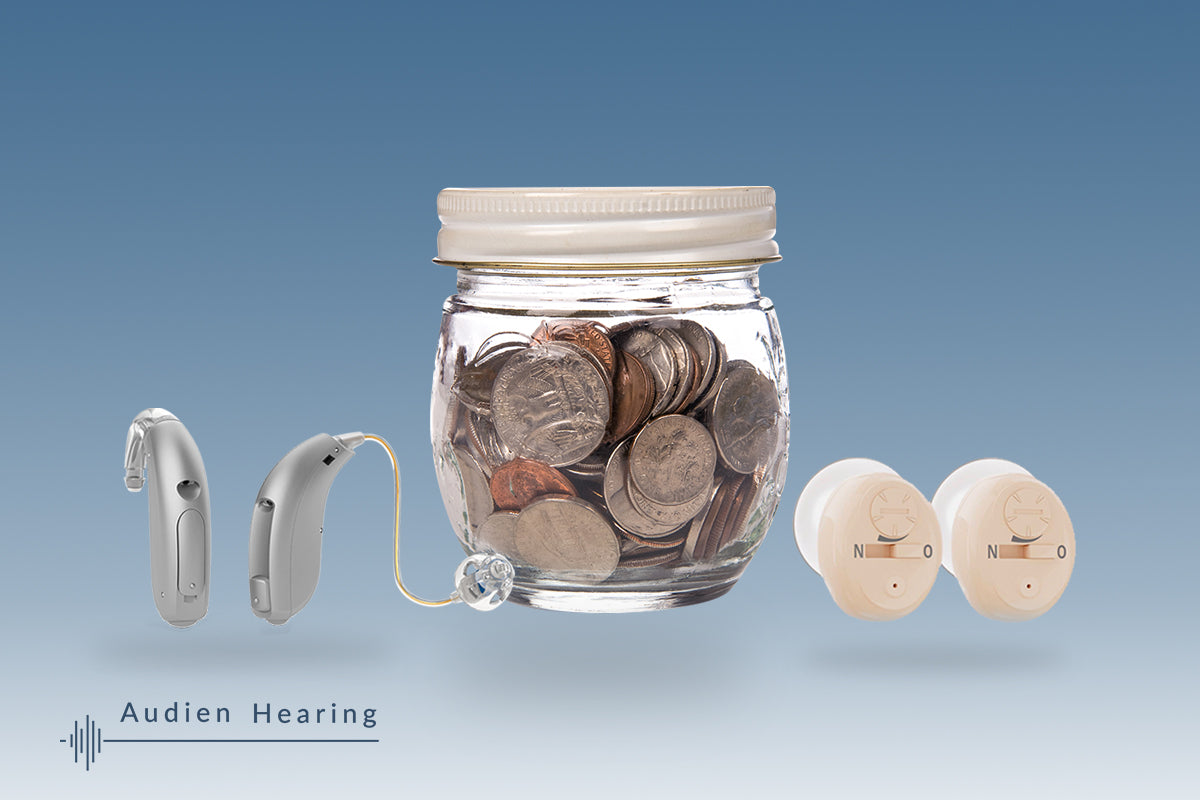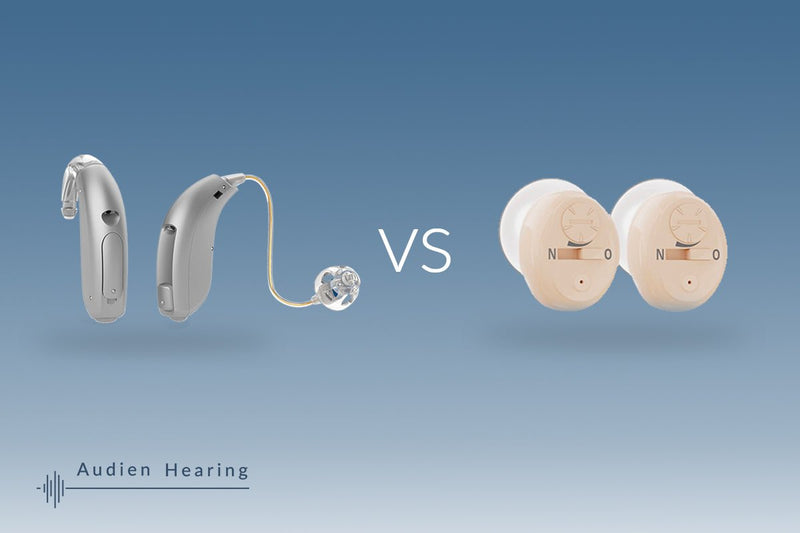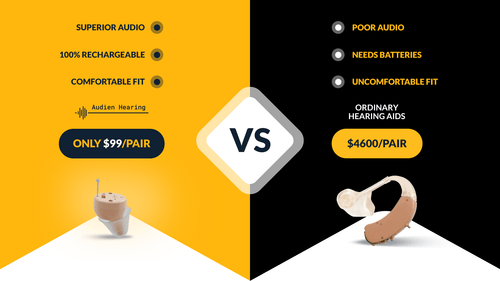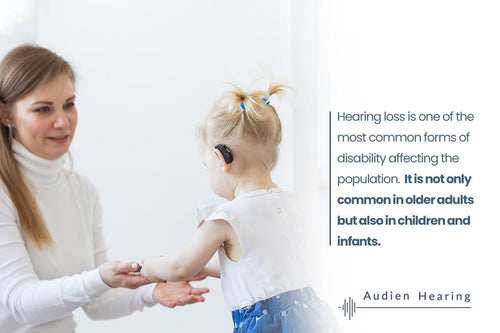Hearing loss is considered a widespread disability, with one in ten people in the United States reporting some degree of hearing impairment. Because of this, equipment and therapy to treat hearing loss are in great demand.
Individuals facing hearing loss challenges can have a variety of different options depending on the severity of their condition. The most common form of treatment is hearing aids that help to enhance the ear’s ability to recognize sound waves and then send that information to the brain for interpretation.
Hearing aids can help improve hearing for people that have trouble hearing. However, with the prescription of hearing aids, they can typically come with a hefty price tag.
The cost of the hearing aid devices is related more specifically to research and development, technology, equipment, and market forces.
An alternative that many people have sought instead of hearing aids is devices known as hearing amplifiers. Hearing amplifiers are unique; one size fits all devices. Hearing aids and hearing amplifiers do not have the same health benefits.
Let’s go over what hearing loss is and the differences between the two types of hearing devices.
What You Need About Hearing Loss
Hearing loss is a prevalent condition that affects millions of people. The reason for its widespread presence is that it has several different causes, and everyone can be susceptible.
Unlike certain conditions that lend themselves primarily to genetic disposition or certain lifestyles, hearing loss can be acquired by anyone at any point in their lifetime. It can be the result of traumatic injury, chronic overuse, or exposure to loud noises. It can also be congenital and be acquired genetically at birth or as a result of some complications like infection or premature birth.
There are different types of hearing loss. A common kind of acquired hearing loss is conductive hearing loss. This refers to any condition that physically impedes the ability of the inner ear to receive sound waves from the open air. This can be caused by issues in the outer or inner ear and be the result of traumatic injury or infection.
If something gets lodged in the outer ear or even if there is a build of ear wax, this can cause what is usually known as mild hearing loss. Loud sounds may present as muffled, and you may not be able to understand people when they talk quietly.
You can also have sensorineural hearing loss, which can be acquired congenitally or can be developed. This category of hearing loss has less to do with blockage and more to do with a disconnect in the neural activity of your hearing process. This kind of hearing loss can result in moderate to severe conditions that can qualify you for financial assistance from the government.
What is the Big Difference Between Hearing Amplifiers and Hearing Aids

Regardless of what kind of hearing loss you have or what category you are experiencing, you will probably seek some kind of help to mitigate or help improve your hearing. While financial assistance for hearing loss is a recognized disability is only given for conditions with a 60 decibels and higher threshold. There are certain circumstances where there are exceptions such as worker's compensation or military (VA) benefits. There are some newer medical insurance plans that allow some partial coverage.
When you are deciding between hearing aids and hearing amplifiers, this question can come to light - Which one is better? While this is not a clear-cut answer, you can get insight into which option you should pursue by better understanding the different aspects of each.
Noise Amplification for Everyone
A noise amplification system is a very simple device. This device is designed to take all soundwaves you would normally be exposed to and amplify them.
This can be very useful in certain situations, and these devices are not just utilized by those who are experiencing or struggling with hearing loss. In fact, anyone who might have to enhance their ability to hear depending on certain situations may utilize one of these devices.
The good thing about noise amplification is that they are easily accessible and not terribly expensive. In fact, with some simple research, you can find quality products at very reasonable prices as compared to a hearing aid that can cost upwards of several thousand dollars.
The bad thing is that these devices amplify any sound waves, which can be counterproductive in environments that have a lot of background noise. They don’t enhance a person's ability to zero in on a certain frequency.
Specific Noise Enhancement for the Impaired
Hearing aids are typically prescribed and are much more expensive overall. Doctors and audiology visits contribute very little to the cost and are usually covered by insurance.
These devices are highly specific and programmed to your exact diagnosis and needs. To understand this - let’s look at how hearing loss typically works.
Hearing loss is a person's ability to recognize a frequency at a certain decibel threshold. For instance, moderate hearing loss has a decibel (dB) threshold of 26 to 40 dB. This means that sound waves within this frequency (for example, leaves rustling or birds singing) will be lost. Without a hearing aid that specifically targets this frequency, it will be hard to hear sounds within the threshold of 26 to 40 dB.
As your natural ability to hear may decrease over time, your decibel threshold will increase. With moderately severe hearing loss, you will need assistance to be able to recognize loud noises.
Once you have gone through hearing tests, you will then be able to get a device that is programmed to help you boost only the frequencies you have an impairment for. This boost allows you to have a balanced experience that is not loud and jumbled because not all sound waves are equally being promoted.
The Difficulty That Comes With Hearing Aids

It’s obvious that hearing aids potentially hold more health benefits than general sound amplifiers; however, that doesn’t mean that they are a good choice for everyone.
The unfortunate truth is that many private insurances do not cover the insanely high cost of prescribed hearing aids.
The financial weight of attaining hearing aids for many people is just as real as the loss of hearing. These multi-thousand dollar devices are incredible, but they are not a viable option for most people because they simply can’t afford the incredibly expensive process.
A Better Option
Creating a more affordable hearing aid option that is not so expensive is not an impossible feat. In fact, Audien has developed a hearing aid that is made with quality materials and ranges from $89-$249.
Because Audien’s hearing aids are affordable, you won’t have to compromise your finances to acquire hearing aids. We utilize a one-size-fits-all technology designed to help improve your hearing without breaking the bank.
As a disclaimer, we cannot build a prescription programmed hearing aid. Our specialized technology is designed to help bring the sounds you want to hear to the forefront of your attention while limiting the amount of background noise. We do this by designing our hearing aids to pick up on frequencies used in conversation. This allows you to manipulate the volume while filtering background noise.
Conclusion
At the end of the day, just because you have a form of hearing loss that is less than moderately severe doesn’t mean that your only option for hearing aids should cost you thousands of dollars. Millions of people experience varying levels of hearing impairment, and it’s our mission to make quality, affordable products that can help you enjoy your life and reclaim any hearing loss you might have suffered.
For more on how our products might be right for you, check out our EV1 and EV3 hearing aids to help improve your hearing today.
Sources:
Degrees of Hearing Loss | Hearing Health Foundation
Hearing Aids and Personal Sound Amplifiers: Know the Difference | FDA.gov




